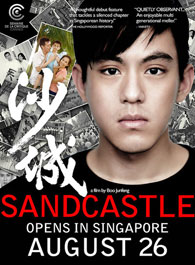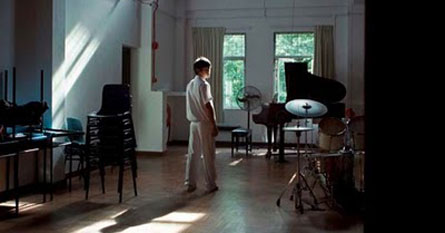
When a film begins like that, you know that it will feel dispirited and lethargic, with characters swimming and talking through an invisible fog. That fog happens to be the sins of history committed during Lim Yew Hock’s indiscriminate crackdown of leftists and Communists (real, alleged, and crypto). And even if Singapore has moved on, the coming of age story of En (Johsua Tan) and the parallel backstory of his father’s (Andrew Seow) student protest days suggests that Singapore’s future generations are in fact stuck like flies in amber until they confront the historical trauma squarely – beyond the officially sanctioned narratives that suggest we remember who won and for our own good, politely forget the rest, and move on.
Weaving in and out of this main storyline are several very Singaporean sub-plots and themes, which vary in clarity, development, and focus: a senile grandparent who may need to be put in a home; an army colonel who is so well-meaning, you can’t really fault him for being a stand-in for the oppressive, illiberal, disciplining institution; a first love story with a PRC girl; the co existence of Christianity and Buddhism in Chinese families; and so on...
The film could do better developing (or alternatively, pruning) its generous spread of sub plots, which suffer by competing for runtime with the film’s equally generous and repetitive artsy shots of stray cats, the beach, the endless vista of Singapore’s apartment blocks. Unlike the short film medium which Boo is competent at, such shots don’t work the same way in a feature film. Here, it just gives the impression that there’s a good 45-minute short film wearing a lot of padding to pass for a feature film.












 打印版本
打印版本










读者回应
请先登入再使用此功能。